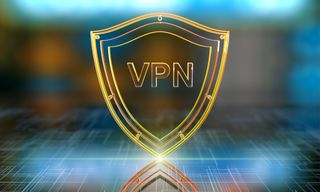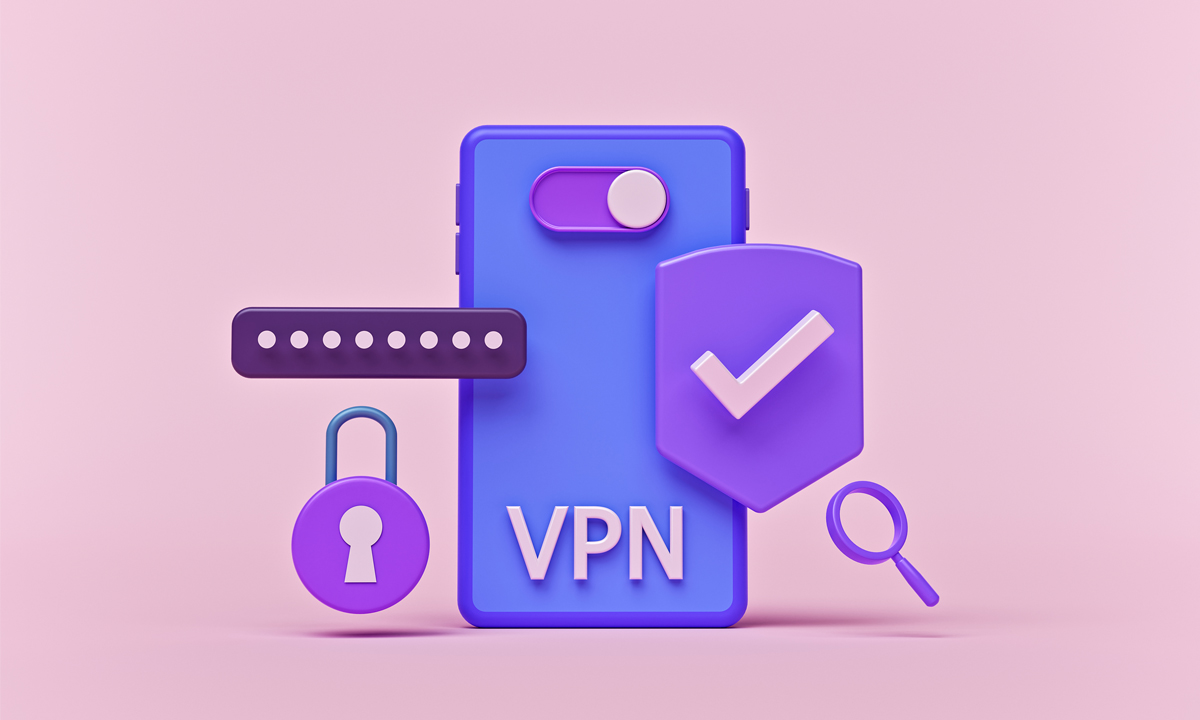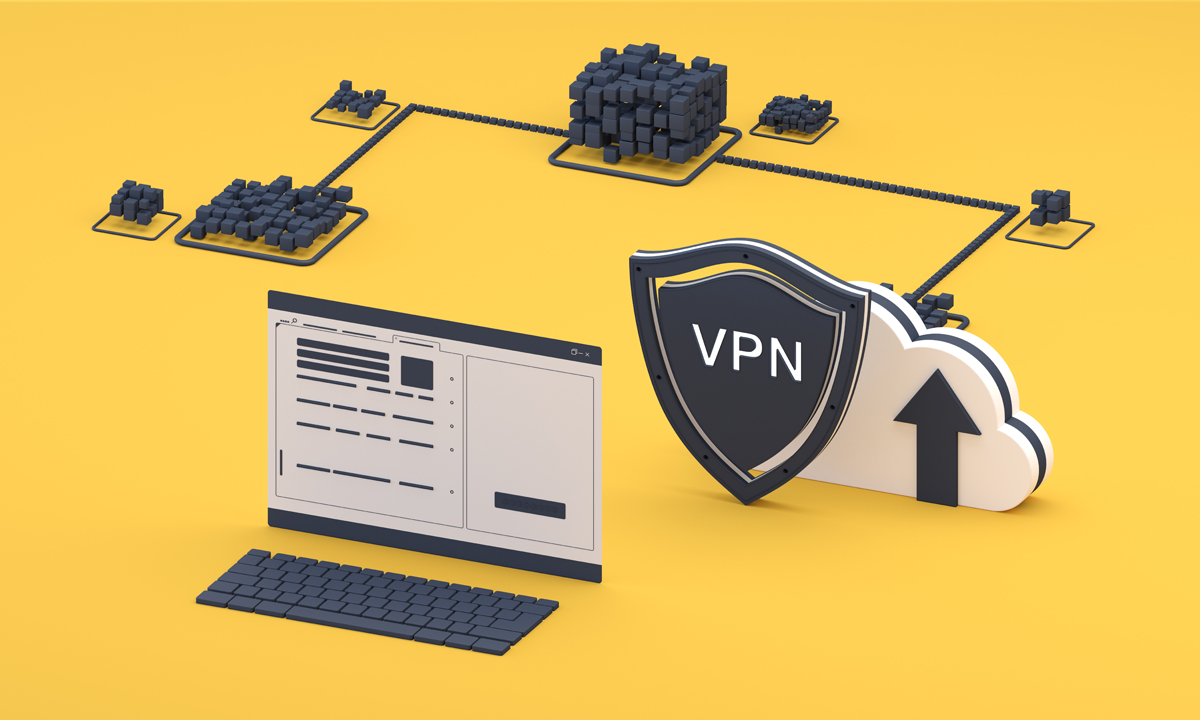Does a VPN slow down your internet connection?
Does a VPN wearisome downwards your internet connection?

There'due south zilch quite equally abrasive every bit having a dull internet connexion, and if your Wi-Fi's moving at a snail's stride information technology's nigh-impossible to work, watch videos, or even message your friends and family.
It should come every bit no surprise, and so, that a major business concern for many when picking the best VPN service is that it could slow downwardly your internet connexion. Simply is that true, and if it is, past just how much can you expect to be held upwards?
Here, nosotros'll explain how VPNs have the potential to ho-hum down your connectedness, and we'll draw on our beginning-manus testing data to see whether any modernistic providers will really take an bear on on your internet speed.
- Who comes out on top in ExpressVPN vs NordVPN?
- Or perhaps you'd like to know who wins in ExpressVPN vs Surfshark
- Save a wad with the best cheap VPN
Tin can VPNs slow down your internet connectedness?
In short, yep, they can – simply it's rare these days.
We'll start with the basics. A VPN works past routing your traffic through its own servers – essentially becoming a middleman between you and the website you want to visit. That adds actress physical distance that your cyberspace traffic has to travel. This stride is usually the footstep that can cause a higher 'ping'.
Ping is the delay between you taking an action and that activity happening, and while a very high ping will be abrasive in any state of affairs, a very low ping is only essential if yous're doing something like gaming, which requires your reactions to be every bit fast every bit possible. 100 milliseconds is perfectly acceptable day-to-day, and by selecting a server geographically near to your electric current location, yous can avoid whatsoever substantial ping increment.
A VPN likewise encrypts your data, making it unreadable to anyone who may manage to intercept it – be that a hacker or simply your Internet access provider. This is the step that may contribute to lower upload and download speeds, since it takes to time encrypt and decrypt data. Low download speeds especially are what contribute to having a 'dull connection' – pages will load slowly, videos volition buffer endlessly, and you'll basically just exist having a crummy time.
Finally, VPN servers have a finite throughput. That ways that if a lot of people are using an individual server, speeds tin can be slower if the server's not up to task. Many providers are upgrading to 10Gbps or fifty-fifty 20Gbps servers now, meaning that overcrowded servers are largely a affair of the past when it comes to the biggest and best providers.
So, a poorly optimized VPN can definitely take an event on your cyberspace speeds, but in contempo years advances in encryption tech have meant that the touch on has become negligible – we'll become onto the numbers to back this up very soon.

How have VPNs got faster?
There are a number of reasons why quality VPNs don't often boring down internet connections any more. Firstly, the apps that your chosen VPN service provides are generally pocket-sized, efficient packages that put a minimum of load on your device.
More importantly, though, VPN protocols have avant-garde. VPN protocols are how a VPN encrypts your information and sends information technology to its destination – there'southward more to it than that, so cheque out our what is a VPN? guide to acquire more.
Upward until a few years ago, the dominant VPN protocol was OpenVPN. OpenVPN replaced a number of older, less secure protocols, and is yet widely regarded equally safe, secure, and reliable. However, as a piece of code it'due south quite large and carries many updates and modifications, and connectedness speed was never a priority in its original design. Different VPNs often delivered wildly different speeds when using the aforementioned protocol, and years ago it was definitely true that a VPN slowed downwardly your connexion.
However, new protocols similar WireGuard and proprietary tech like ExpressVPN'due south Lightway are becoming the get-to protocols, and have been designed from the ground-up to deliver great speeds likewise as excellent privacy. Now, even VPN providers not known for great speeds in the past can match up with the big guns if they've implemented WireGuard efficiently.
Which VPNs are the fastest?
Y'all don't have to take our word for information technology, either. In our review procedure we record the connection speeds of every VPN nosotros test, and at that place are some incredibly fast VPN services on the market today. Our tests are undertaken on a superfast 1Gbps connection, and if the speeds nosotros recorded are faster than your home connectedness, y'all tin can safely presume that you won't be held up by that VPN.
Big name NordVPN uses a modified version of WireGuard it calls NordLynx, and in our testing it was the fastest provider. It reliably delivered speeds of up to 880Mbps when using NordLynx, compared to around 190Mbps when using OpenVPN.
When testing ExpressVPN's Lightway protocol, nosotros as well saw splendid results, with speeds of upwards to 580Mbps. However, OpenVPN speeds were much ameliorate than Nord'southward, reliably reaching over 300Mbps.
ProtonVPN didn't used to exist much of a sprinter, but when using WireGuard it regularly topped out at around 740Mbps. OpenVPN speeds were also impressive, with maximums of over 500Mbps. If yous'd still adopt to employ OpenVPN, ProtonVPN would be our choice for top speed.
Even smaller VPNs tin deliver fantabulous speeds when using WireGuard, though. Atlas VPN, best known for its free VPN, soared well-nigh the superlative of our chart with speeds of upwards to 800Mbps, and ZenMate maxed out at a respectable 500Mbps.

Will a complimentary VPN tedious downwards your connection?
Different uncapped paid-for VPN, costless services impose limitations on users – mostly in the hope that they'll upgrade to a paid plan to avert them.
Alongside data limits, one of the nearly common restrictions is a speed limit. For example, Hotspot Shield's free version limits users to a very deadening 2Mbps, which won't cope with much more than simple browsing of text-based websites. You won't be watching many 4K YouTube vids with that.
While it's probably the best free option out there, ProtonVPN'south gratuitous program also caps speeds, and while it's non quite a brutal as Hotspot Shield, you certainly won't be seeing speeds achieve triple figures.
So, yes, complimentary services are very likely to slow down your connection – but that'due south because the provider's chosen to cap speeds, rather than a limitation of the tech.
Does a VPN slow down your internet connection?
In the past, the respond to that would've been yes, but in today's market, VPNs but tin't afford to tedious downwardly connections. WireGuard has been instrumental in this, and even if you're using a superfast connection of 1Gbps or more than, if you choice the correct provider you won't have whatever issues.
Which VPN do nosotros recommend?
- Explore our guides to the best Android VPN and iPhone VPN
- If you're a Windows user, cheque out the best Windows 10 VPN...
- ...or if you're an Apple-caput, read nearly the best Mac VPN
Source: https://www.tomsguide.com/features/does-a-vpn-slow-down-your-internet-connection
Posted by: wilsoncolusay1992.blogspot.com


0 Response to "Does a VPN slow down your internet connection?"
Post a Comment